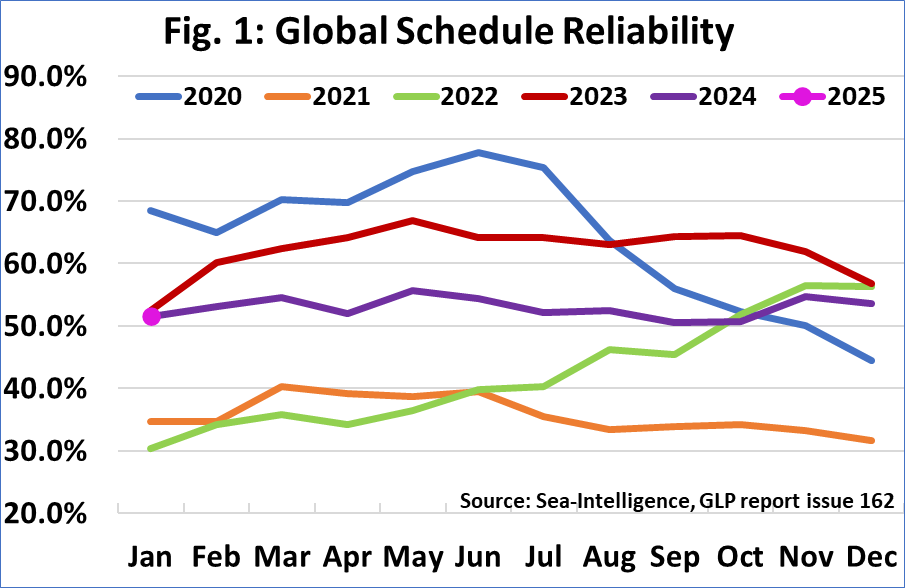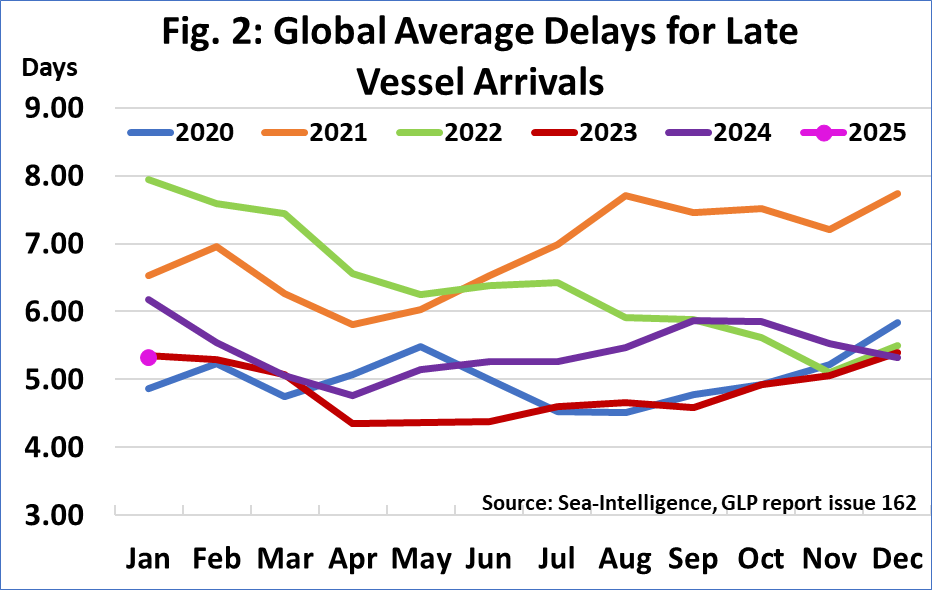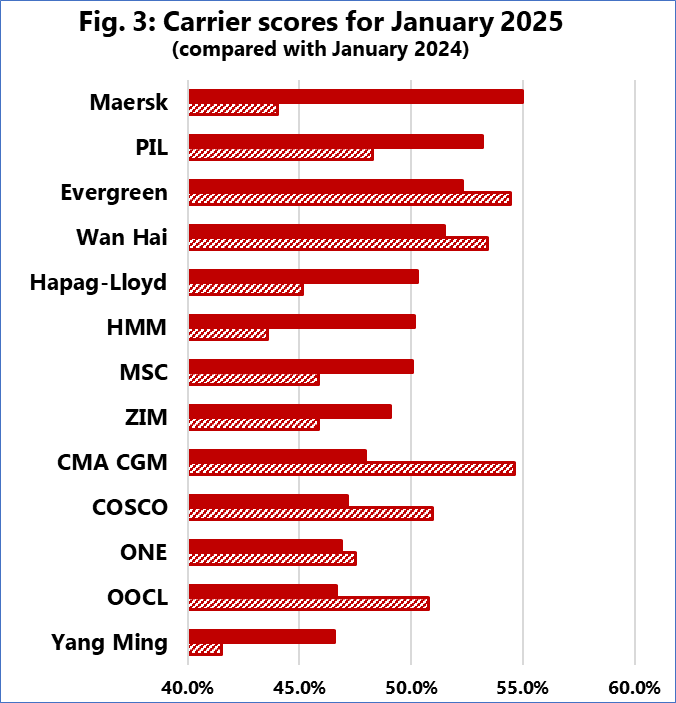Throughout 2024, schedule reliability stayed largely within 50-55%, Sea-Intelligence said in a new report, and the new year has started in a similar manner, with schedule reliability continuing to remain within that range.
The Danish shipping consultancy company said the January 2025 score of 51.5% is the same as in January 2024.
On a month-on-month (M/M) level, though, schedule reliability dropped by -2.1 percentage points.

Average delay for late vessel arrivals hit new low
It added that the average delay for late vessel arrivals decreased by -0.01 days M/M to 5.32 days, which is the lowest that the delay figure has been since July 2024 and is lower than across all pandemic-impacted years.
On a year-on-year (Y/Y) level, the January 2025 figure was -0.85 days lower.

For January 2025, Sea-Intelligence named Maersk as the most reliable top-13 carrier with schedule reliability of 55.0%, followed by another 6 carriers with schedule reliability over 50%.
The remaining 6 top-13 carriers were within 46-50%, with Yang Ming and OOCL at the bottom with 46.6%.

In January 2025, the difference between the most and least reliable carriers dropped to under 8.5 percentage points – the smallest difference since March 2017.
It added that only 4 of the top 13 carriers recorded an M/M improvement, with Wan Hai recording the largest increase of 3.7 percentage points.
On a Y/Y level, 7 carriers recorded an improvement, with Maersk recording the largest improvement of 10.9 percentage points.
Sea-Intelligence's Global Liner Performance (GLP) report covers schedule reliability across 34 different trade lanes and 60+ carriers.



